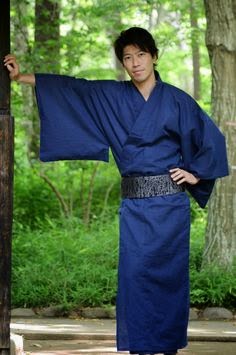!! ATTENTION !! This is a double episode in which I post two prompts in one ... but every prompt has it's own linking widget !!
!! I publish this (double)post earlier, because I am in the nightshift !!
Dear Haijin, visitors and travelers,
First I have to apologize for the delay of this post. There were a few things who needed my attention, but those issues have been solved so I can create this post (not that much later) for CDHK. I also will create our following episode, spring kimono (planned on January 5th), now already. I am in the nightshift and it's very busy at the moment. I am glad that I have found a little time to create these posts for you.
Ok ... our first prompt in this episode is First Sun (Hatsuhi) and I think it's quit clear that this points to the first day of sunshine in a New Year. Here in The Netherlands we had a cloudy New Year's Eve and first day of January, but on January 2nd it was a nice (almost spring-like) sunny day here ... so we have had our first sun already. There are a lot of New Year's Traditions in Japan and a few will come along here at CDHK.
I have found a few wonderful examples of classical haiku poets who have used this kigo. First a haiku by Masaoka Shiki:
yamazato ya hatsuhi o ogamu juji goro
a mountain village
the first sun is welcomed
at ten o'clock
© Shiki
Of course the scene in this haiku could be easy situated in spring or summer, but hatsuhi is a kigo for New Year and so we know that Shiki wrote this haiku in the New Year season.
Another nice one, with a touch of humor, I love to share here is a haiku by Kobayashi Issa:
nukarumi ni tsue tsuppatte hatsuhi kana
planting my (walking) stick
in the mud: the rise of
the first sun
© Issa
 |
| Credits: First Sun |
The last haiku by a classical haiku poet which I would like to share here is one written by Kingetsu (18th century) who isn't that wellknown, but he has written nice haiku and this is one by him:
oshu wa ika ni to omou hatsuhi kana
the outer states
what do they think about
our first sun-day?
© Kingetsu
A lovely trio of haiku I think and it will not be an easy task to write an all new haiku for this classical kigo, hatsuhi, but I have to give it a try ...
Well ... here it goes:
New Year's morning
the first sun caresses
my naked body
© Chèvrefeuille
This episode is NOW OPEN for your submissions and will remain open until Januart 6th at noon (CET). Our new episode, spring kimono, will follow immediately in this post, but it will have it's own linking widget!!!
+++++++++++++++++++++++++++++++++++++
+++++++++++++++++++++++++++++++++++++
Carpe Diem #641, Spring Kimono (Harugi)
One of the extra-ordinary classical kigo for spring is Harugi or Spring Kimono, a soft cotton kind of kimono and in this kigo "spring" directs to "New Year's Season". It was a common use in ancient Japan to make an all new kimono for the New Year of a soft kind of cotton.
As the first day of a new year came it was time to put on that new kimono, the spring kimono or harugi.
 |
| Credits: Spring Kimono or Harugi |
natsu matade baika no yuki ya shiroi harugi butsu
not waiting on summer
the plum blossoms in snow -
white spring kimono
© Den Sutejo
After looking for only "kimono" I found a lot of haiku, so I will share a haiku here by Issa in which the kimono is mentioned. In the following haiku the season is not New Year, but Spring, but it could be written in New Year, because plum blossoms can blossom early in January.
sakura e to
miete jin-jin bashiyori kana
off to view
cherry blossomsold man with kimono
tucked
© Issa
And I found ... one by Yozakura, our unknown haiku-poet, which we discovered last year ...:
“New Year’s Day!”
the little boy and girl scream
“can we wear our spring kimono?”
© Yozakura
I can see those faces in front of me ... brings a smile on my face ... it's a nice scenery caught in three lines. I tried to find the Romaji translation of this haiku, but couldn't retrieve that.
And now it's up to me to write a haiku about Spring Kimono (Harugi) ... that will not be easy ...
cherry blossom viewing
together with the one I love
wearing her harugi
© Chèvrefeuille
 |
| Credits: Traditional Japanese Kimono |

Nicely done! Thank you so much for your dedication to this blog.
ReplyDeleteI love your haiku...lovely prompt!
ReplyDeleteLovely haikus and pictures!
ReplyDeleteLovely images your haikus present, wonderful
ReplyDeleteVery well done Kristjaan!
ReplyDeleteYou are a good teacher, Kristjaan. Wish I could remember all that I have 'learned'.
ReplyDelete..